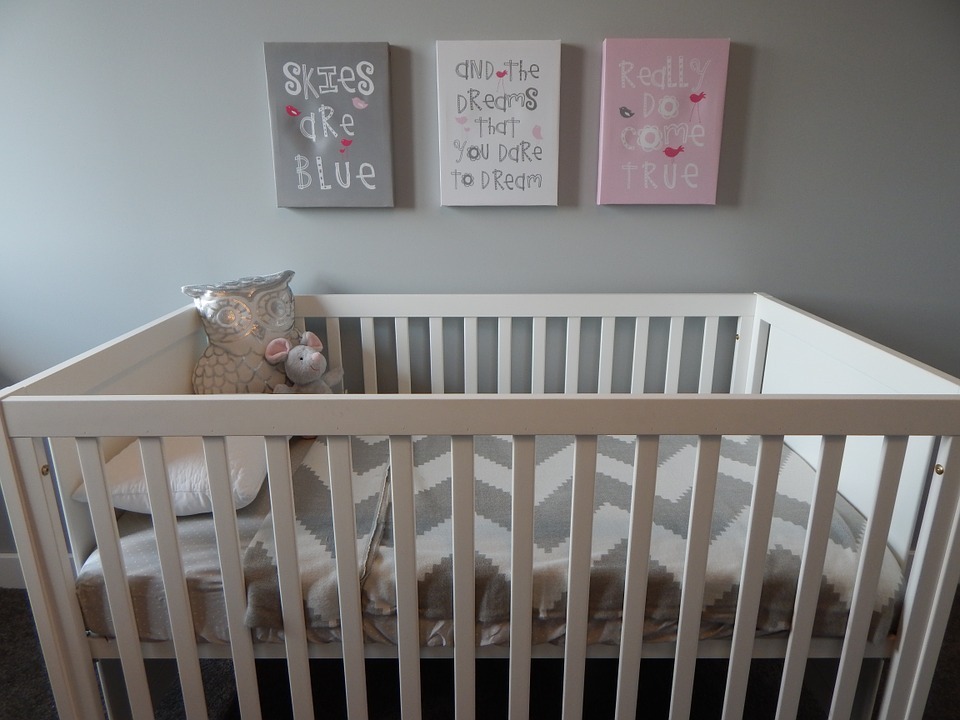A lot of parents, especially mothers struggle to get a good night’s sleep because of their babies. If you’re one of those who haven’t had a decent sleep since your baby was born, don’t worry because you’re not alone. In fact, sleepless nights are kind of a rite of passage for most new parents. But it doesn’t mean you have to continue struggling with it because there are ways that you can help your baby sleep all night.
Newborn babies do not have the ability to tell the difference between day and night yet, that’s why some of them seem to sleep all day and stay up most of the night. According to doctors and other parenting experts, it can take weeks or even months before babies start to sleep through the night and be more awake during the day. But in the meantime, we are going to share with you some strategies and tips that you can try to help your baby get into the habit of sleeping at night and being awake during the day.
1. Make Night and Day Different
You can help babies sleep at night by teaching them the difference between night and day. For example, you can make things a little louder and lighter during the day like surrounding them with nice bright shapes or blankets to look at or take them to nice walks in the fresh air. And at night, you can make everything a little darker, calmer, and more gentle.
2. Follow a Consistent Bedtime Routine
Overstimulating your baby in the evening can make it difficult for him to settle to sleep. Before your baby’s bedtime, try bathing, cuddling, singing, playing quiet music, or reading, with a clearly defined endpoint when you leave the room. Also, do these activities before your baby is overtired in a quiet and softly lit room.
3. Put Your Baby Down for Daytime Naps in the Crib
If your baby will be taking a nap, make sure that you put him in his cot rather than letting him nap in prams or car seats because these are not ideal nap zones. The more comfortable naps they have, the better their bedtimes at night will be.
4. Put Your Baby to Bed Drowsy, But Awake
Doing this will help your baby get associated with the process of falling asleep. Place your baby to sleep on his back. Also, remember to clear the crib or bassinet of blankets and other soft items.
5. Don’t Let Your Baby Get Overtired at Night
Do not put your baby to bed when overtired. You need to learn how to spot when your baby is becoming tired. Some signs are if he starts rubbing his eyes or starts fussing. Once you see signs of tiredness in the evening, get your baby ready for bed right away. It’s because overtired babies find it more difficult to fall asleep naturally, unlike babies that are put to be drowsy which are more likely to sleep for longer hours during the night.
6. Give Them Time to Settle Down
Babies tend to fuss or cry before finding a comfortable position and fall asleep. However, if their crying does not stop, check on your baby and offer comforting words and leave the room. Sometimes, babies just need their parents’ reassuring presence for them to fall asleep.
7. Keep Your Baby’s Nighttime Care Low-Key
If your baby needs care or feeding during the night, you can keep the lights dim and use a soft voice and calm movements. This way, your baby will know that it’s time to sleep and not to play.
8. Offer One Last Feeding
Before you go to sleep, gently wake up your baby to nurse or bottle-feed. Doing this will help your baby wake less often in the coming hours. After that, put your baby back down while he’s still awake but drowsy.
9. Try Doing Some Baby Massage
Massaging babies regularly before bedtime helps them relax and drift off to sleep at night. In fact, based on research, babies that are regularly massaged have higher levels of melatonin, which is a sleep-inducing hormone. But there are some babies who do not like to be massaged, so make sure to follow your own baby’s lead.
10. Regulate the Temperature
Most of us can sleep better when the bedroom is a little cooler, and babies are no different from us. For your baby to have a good night’s sleep, make his room cooler at night. The optimal temperature for infants is between 65 to 70 degrees F. If you do not have a thermostat at home that you can control, you can instead leave the window slightly open or use a fan when your baby sleeps at night. Just make sure that the baby is far from the windows and fans, and that the room will not get too cold or too hot.
These are some of the best tips we can give to help babies sleep at night. Keep in mind that getting your baby to sleep through the night is not a measure of your parenting skills. Aside from these tips, it’s also important to take time in understanding your baby’s habits and ways of communicating for you to help him or her sleep better. If you’re having difficulties in sleeping at night, you can also check out our post on How to Improve Your Nights Rest for tips.


